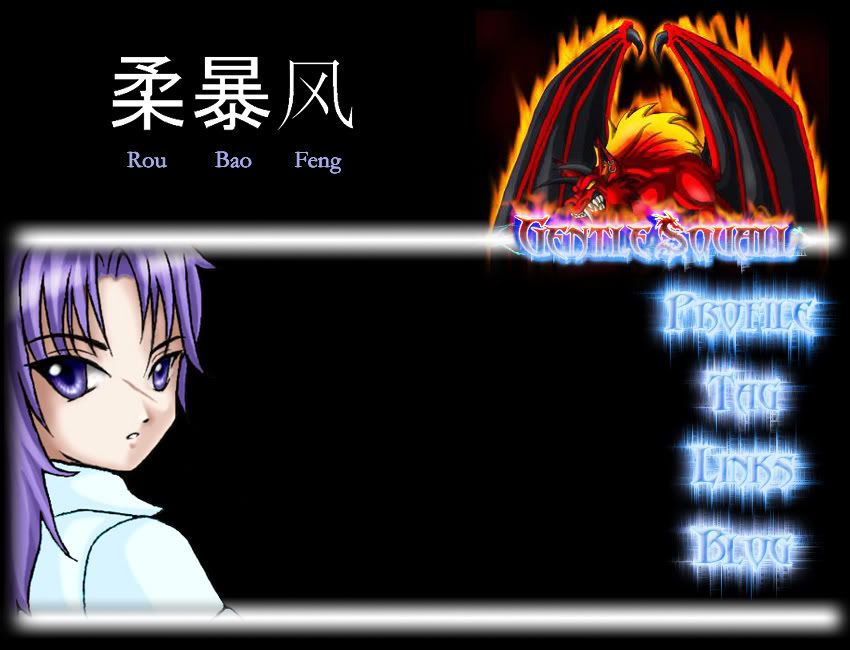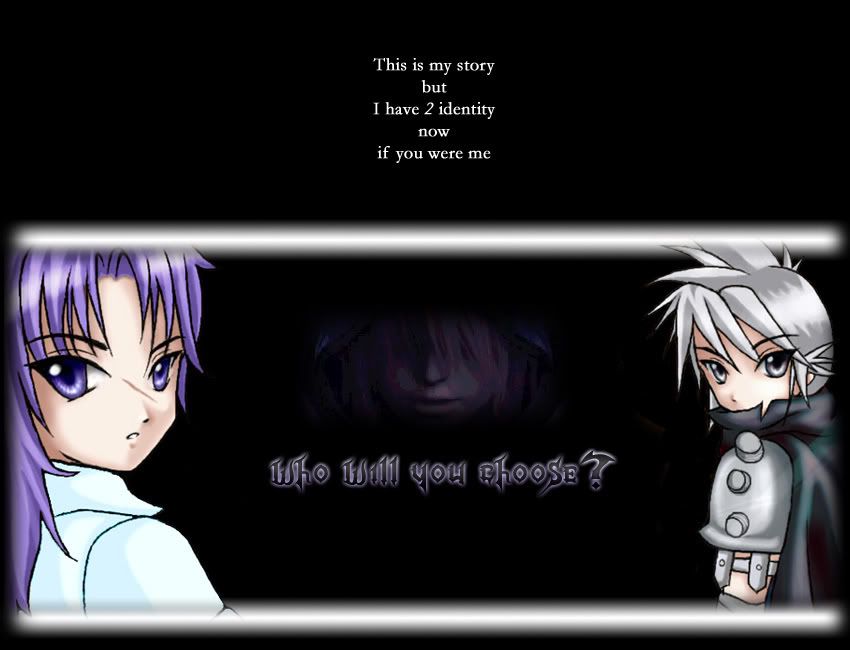









Name: GentleSquall
Class: Guardian Force
Age: Too old for you
Element: Plasma
Weapon: Plasma Crystals
Special Skill: Miraculous Phenomenon
Love: Everything
Hate: Nothing
Story:
The Alpha of all Guardian Forces.
Name: CryptoCloud
Class: Nobody
Age: Nobody Knows
Element: Anti-Matter
Weapon: Unknown
Special Skill: Better Left Forgotten
Love: Nothing
Hate: Everything
Story:
The Omega of Nothing.
INSERT TAGBOX HERE
www. .www
wwww wwww
wwwwvwwww
wwwwwww
wwwww
www
w
: |Friend's blog| :
Æ private blogskin
Æ UIR blog
Somebody
Somebody
Somebody
Somebody
Somebody
Somebody
Somebody
Somebody
Somebody
Somebody
Somebody
Somebody
Somebody
Somebody
Somebody
Somebody
Somebody
Somebody
Somebody
: |Archives| :
: |Friend's blog| :
Æ private blogskin
Æ UIR blog
Nobody
Nobody
Nobody
Nobody
Nobody
Nobody
Nobody
Nobody
Nobody
Nobody
Nobody
Nobody
Nobody
Nobody
Nobody
Nobody
Nobody
Nobody
: |Archives| :
:: Existential crisis ::
An existential crisis results from:The sense of being alone and isolated in the world,
a new found grasp or appreciation of one's mortality;
Believing that one's life has no purpose or external meaning.
Existential crisis resembles anomie (a sociological concept), the mid-life crisis is an example. Usually, an existential crisis stems from the person's perception of existence.
Non-existential belief systems, such as religion, astrology, and witchcraft, provide compact and logically irrefutable (i.e. tautological) explanations for human existence often invoking a man-made construct of one or more iterations of a supernatural being. A transition to the realization of the absence of fulfillment via religious faith is one avenue to trigger suffering associated with an existential crisis. This sudden appreciation that there is no afterlife and, moreover, the meaning and purpose of one's life is determined from within, not through a irrational narrative defined by others, inevitably leads to substantial personal growth, with the transition through this critical confrontation with the ‘existential’ world a necessary step of maturation
Cognitive dissonance occurs when the man or woman faces the paradox of believing his or her life important, whilst perceiving that human existence is meaningless and without purpose. The person's resolving said paradox results in the existential crisis. For many, a resolution to this crisis is the abandonment of religious beliefs in favor of a rational, non-superstitious relationship to the objective world just confronted. Analogously, existentialism posits that a person can and does define the meaning and purpose of his or her life, hence must choose to resolve the crisis of existence. The terminal synthesis of the crisis most often results in the appreciation of the only true treasure in the world: the inherent self. Thus the resolution produces an insight to the core moral and ethical values intrinsic to our species, made far stronger by shaping in the external world, and now with the strength, judgment and confidence of character to resist the imposition of codes of others. The rejection of religion as the product of existential crises is clearly consistent with such fundamental questioning.
Existential crisis is often provoked by a significant event in the person's life — marriage, separation, major loss, the death of a loved one; a life-threatening experience; psycho-active drug use; adult children leaving home; reaching a personally-significant age (turning 30, turning 40, etc.); imprisonment in solitary confinement, et cetera. Usually, it provokes the sufferer's introspection about personal mortality, thus revealing the psychologic repression of said awareness.
Build an air castle
on Tuesday, July 22, 2008, 3:27 AM
:: Existential crisis ::
An existential crisis results from:The sense of being alone and isolated in the world,
a new found grasp or appreciation of one's mortality;
Believing that one's life has no purpose or external meaning.
Existential crisis resembles anomie (a sociological concept), the mid-life crisis is an example. Usually, an existential crisis stems from the person's perception of existence.
Non-existential belief systems, such as religion, astrology, and witchcraft, provide compact and logically irrefutable (i.e. tautological) explanations for human existence often invoking a man-made construct of one or more iterations of a supernatural being. A transition to the realization of the absence of fulfillment via religious faith is one avenue to trigger suffering associated with an existential crisis. This sudden appreciation that there is no afterlife and, moreover, the meaning and purpose of one's life is determined from within, not through a irrational narrative defined by others, inevitably leads to substantial personal growth, with the transition through this critical confrontation with the ‘existential’ world a necessary step of maturation
Cognitive dissonance occurs when the man or woman faces the paradox of believing his or her life important, whilst perceiving that human existence is meaningless and without purpose. The person's resolving said paradox results in the existential crisis. For many, a resolution to this crisis is the abandonment of religious beliefs in favor of a rational, non-superstitious relationship to the objective world just confronted. Analogously, existentialism posits that a person can and does define the meaning and purpose of his or her life, hence must choose to resolve the crisis of existence. The terminal synthesis of the crisis most often results in the appreciation of the only true treasure in the world: the inherent self. Thus the resolution produces an insight to the core moral and ethical values intrinsic to our species, made far stronger by shaping in the external world, and now with the strength, judgment and confidence of character to resist the imposition of codes of others. The rejection of religion as the product of existential crises is clearly consistent with such fundamental questioning.
Existential crisis is often provoked by a significant event in the person's life — marriage, separation, major loss, the death of a loved one; a life-threatening experience; psycho-active drug use; adult children leaving home; reaching a personally-significant age (turning 30, turning 40, etc.); imprisonment in solitary confinement, et cetera. Usually, it provokes the sufferer's introspection about personal mortality, thus revealing the psychologic repression of said awareness.
Build an air castle
on Tuesday, July 22, 2008, 3:27 AM



